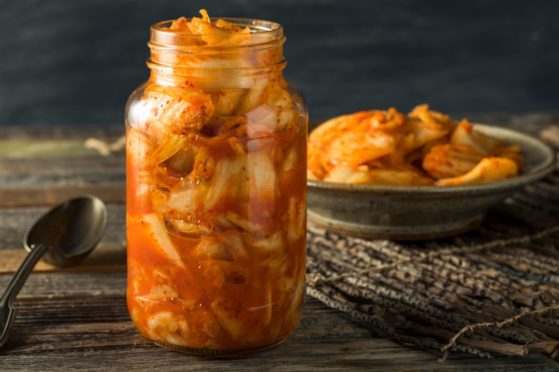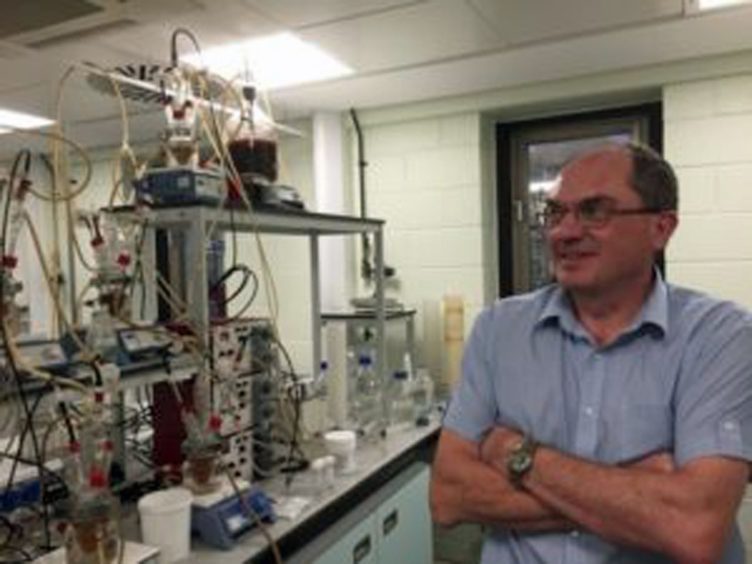
A healthy immune system is vital for keeping us well, and one proven way to support it is with probiotics.
Many studies have found these “good bacteria” can help balance gut flora and produce protective substances that may “turn on” the immune system to fight off bugs. But probiotics have other benefits too.
Professor Glenn Gibson, a professor of food microbiology at Reading University, who’s studied probiotics and prebiotics extensively, and Dr Carrie Ruxton, a dietitian for the Health and Food Supplements Information Service, tell us more about the friendly bacteria that live in our intestines, stomach and gastrointestinal tract.
What are probiotics?
The World Health Organisation defines probiotics as “live microorganisms which, when administered in adequate amounts, confer a health benefit on the host”. Ruxton says:“Probiotics are live ‘friendly’ bacteria in food or supplement form that can alter the balance of our own gut bacteria – assuming they reach the gut intact.”
What are the health benefits of probiotics?
“Lots,” says Gibson. “There are now over 26,000 research articles on their use. These include improved protection against gastroenteritis, reduced inflammation (hence the link to Covid), and boosting immunity. Being harmless microbes, they’re good at stimulating non-specific immunity in the gut. Specific diseases like irritable bowel syndrome and inflammatory bowel disease have been looked at and there’s currently immense interest in obesity and gut-brain interactions (cognitive function).”
In addition, research by Plymouth University last year found probiotic bacteria could help control the development and progression of colorectal cancer. There’s also evidence probiotics are helpful for reducing cholesterol, Gibson says.
Ruxton adds: “Many chronic health conditions, including type 2 diabetes, obesity, inflammatory bowel disease and bowel cancers, have been linked with an imbalance of gut bacteria and optimal immune function – giving us defences against viruses such as coronavirus – depends on having the right bacteria in our gut.”
Who should take probiotics?
Ruxton says: “People eating their five-a-day fruit and veg, and getting two to three daily servings of fibre-rich foods like wholegrain bread, pasta and rice, or high-fibre breakfast cereal, plus a few servings of fermented foods a week, should have a healthy gut microbiota. Everyone else should consider adapting their diets, or taking a probiotic supplement.”
Do you need to take supplements to get enough probiotics?
Gibson says yes, but Ruxton says it’s easy to get enough in the diet by including natural sources, boosting them with prebiotic foods, and ensuring you eat plenty of dietary fibre from wholegrains, fruit, vegetables, legumes and yoghurt.
“Fibre helps keep the gut in good condition,” she explains. “Supplements, or probiotic drinks, can be useful if your diet isn’t perfect, or if your gut needs extra support – for example, if you’ve had a recent course of antibiotics or a viral illness.”
What probiotics should you take?
Gibson says probiotics containing lactobacilli and bifidobacteria are the most well researched and have the best safety and efficacy records. “I like, and take, Multibionta and Actimel,” he says. “Other good ones are Yakult, Proven Probiotics, Protexin and Bio-Kult.”
While Ruxton agrees key species include bifidobacteria and lactobacilli, she says: “There’s no need to focus on particular types or strains. However, focusing on lactobacillus strains is a good start. And make sure the product guarantees most of the bacteria will survive the journey through your gut and reach the large intestine intact.”
Are there any potential problems that can be caused by probiotics?
Ruxton says people who are immunosuppressed, for example if they’re taking immunosuppressant drugs linked to organ transplants, should avoid probiotics because even “good” bacteria, which would be harmless in most people, has the potential to cause infection in those with a suppressed immune system. “Apart from that, probiotics don’t cause harm, even in young children,” she says.
Gibson confirms authentic probiotics are unlikely to cause problems.
Power up on probiotics
Probiotics are essential to good gut health and there are many foods rich in probiotics that you can simply add to your diet.
As well as yoghurt, probiotics are found in many fermented foods, including kefir (fermented milk), kimchi (spicy fermented cabbage), tempeh (fermented soya bean patties), miso (fermented soya bean paste), sauerkraut (fermented cabbage) and kombucha (fermented sweet tea). While kombucha might sound exotic, you can source this probiotic-packed sweet drink across Scotland.
Small-batch, Scottish kombucha makers include Leftfield Kombucha in the Berwickshire, Bad Gal Boocha in Fife, Ave Kombucha in the Cairngorms and Clever Kombucha in Glasgow.
“Probiotics can also be found in supplements and special drinks such as Yakult,” added Dr Carrie Ruxton, who says we should try to combine probiotics with prebiotics, which act like “fertilisers for live probiotic microbes already in the gut”.
“Prebiotics are dietary substances that boost numbers of ‘friendly’ bacteria and promote their activity,” she said. “The most accessible prebiotics are tea, onions, garlic and leeks. These have been proven to help rebalance our gut microbiota.”

Enjoy the convenience of having The Sunday Post delivered as a digital ePaper straight to your smartphone, tablet or computer.
Subscribe for only £5.49 a month and enjoy all the benefits of the printed paper as a digital replica.
Subscribe © University of Reading/PA
© University of Reading/PA © HSIS/PA
© HSIS/PA